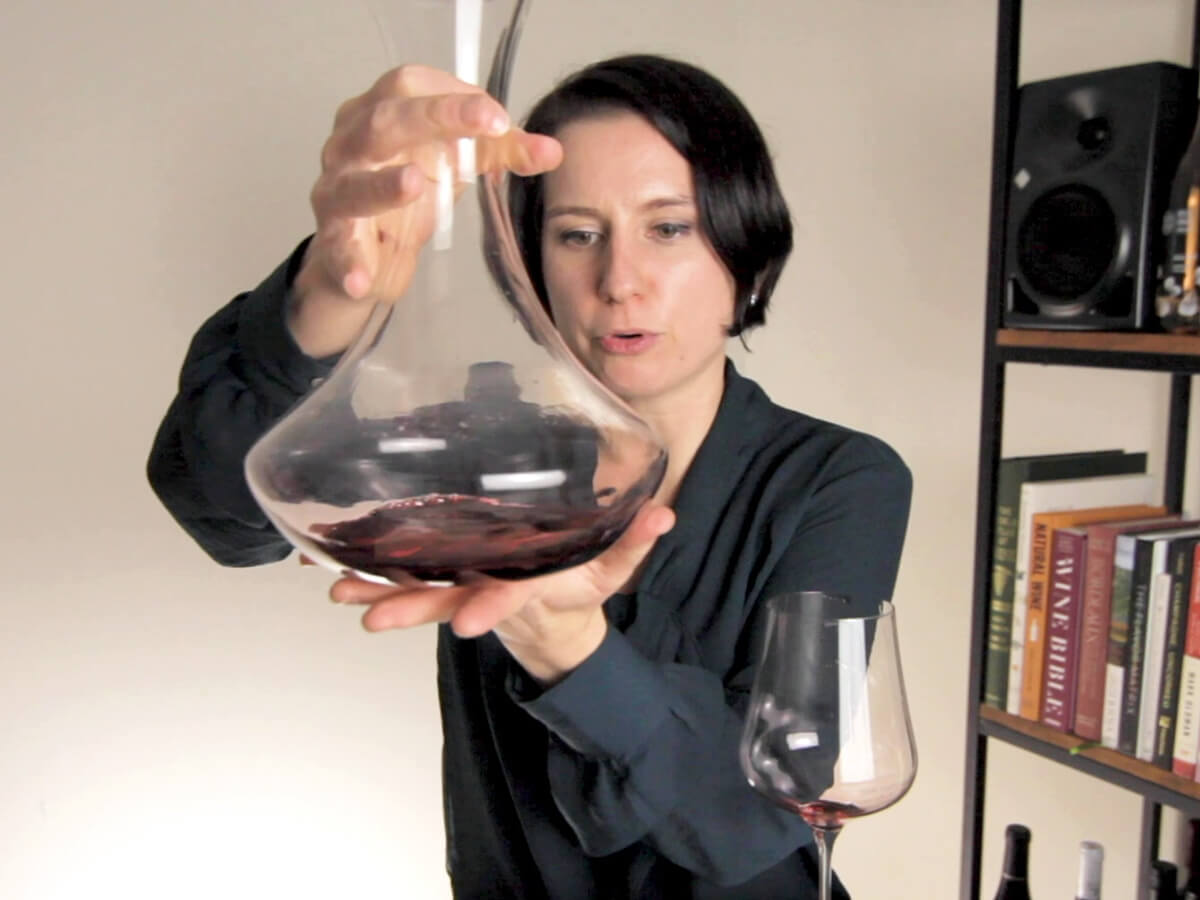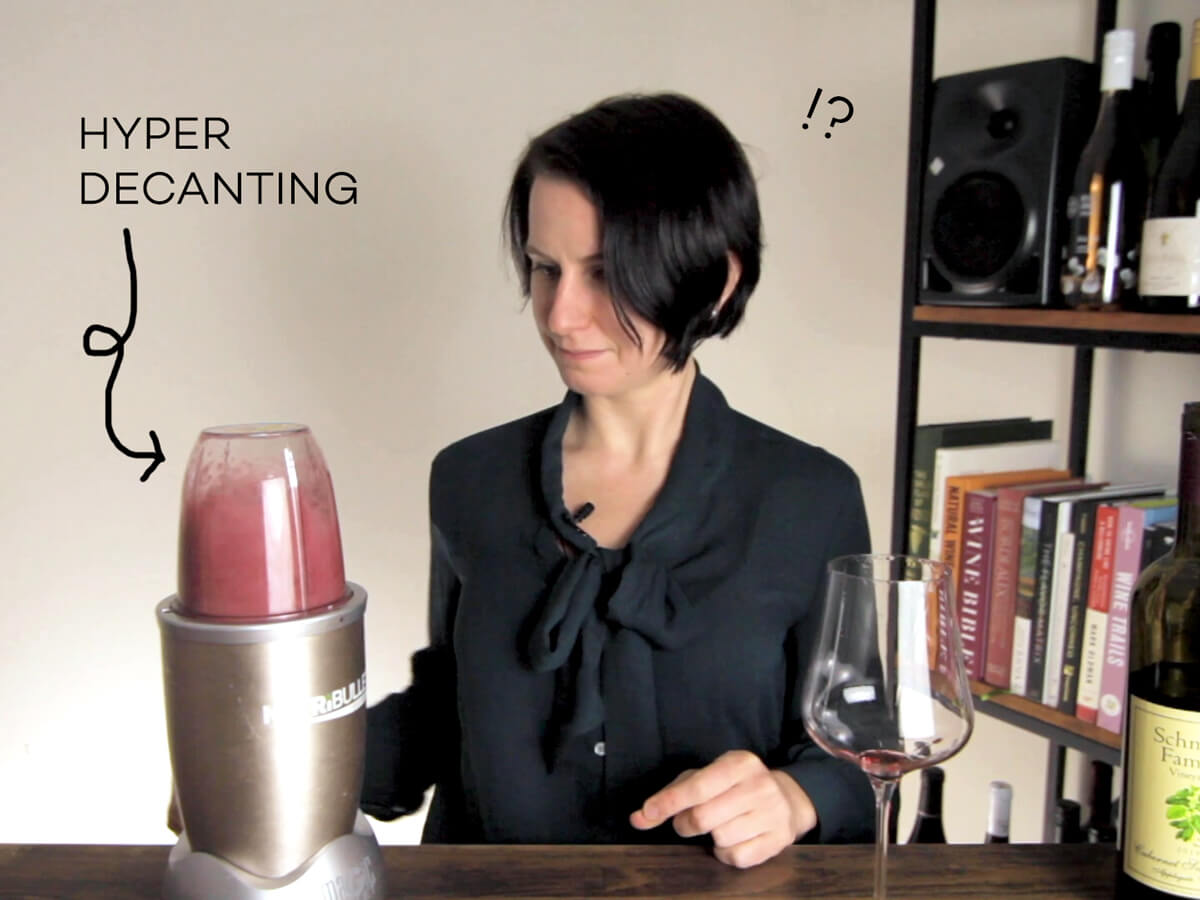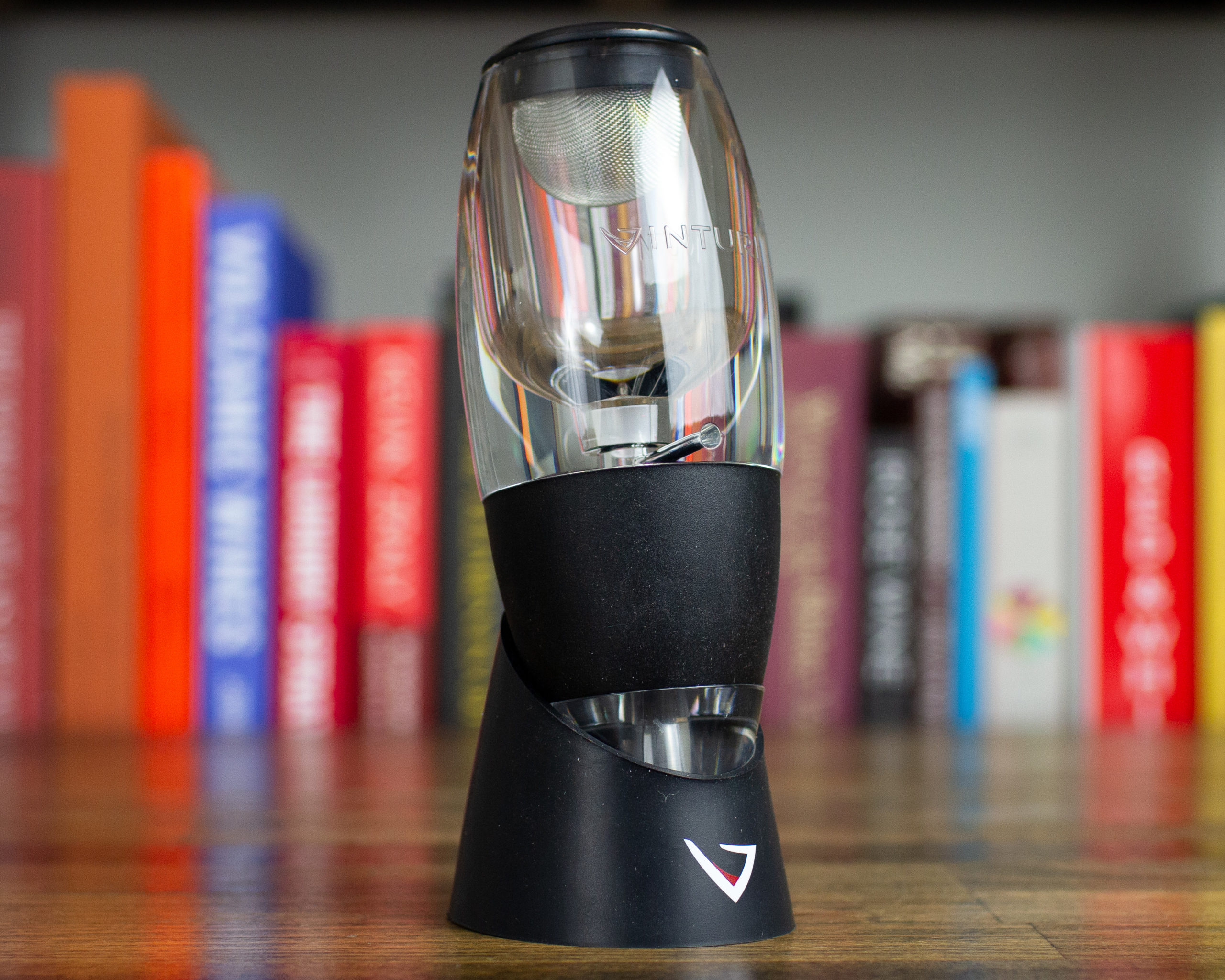How much can you improve the taste when you decant wine? In this video we explore 3 ways to decant wine, including the controversial hyper decanter method.
3 Ways To Decant Wine
- Decanter: The classic and “slowest” method is to pour wine into a glass container with a large surface area. We have a complete list of decanting times here.
- Aerator: These little devices bubble air through wine as it pours, thus creating a speed-decanter. You can pick these up at your friendly wine blog shop.
- Hyper Decanter: Essentially, you’re mixing wine in a blender! After watching the video, you might want to think twice before trying this at home.

Which wine to decant?
Decanting is a good thing to practice on all red wines, especially on the more affordable choices. Basically, the simple process of adding more oxygen when you decant wine makes it smell better and taste smoother.
But red wine is not all that you can decant. There are even rare circumstances when you should decant Champagne.
How does decanting work?
When wines are made and bottled, many are produced in a reductive (lacking oxygen) environment. Many producers practice this method in order to produce wines with longer aging ability. However, because the wine continues to go through chemical changes throughout its lifecycle, it grabs other elements to create both aromatic compounds and polyphenols (tannins–the drying, astringent taste in wine).
This is where things get funky.

In a oxygen-free environment, the chemical reaction often substitutes sulfur for oxygen, which creates off-smelling odorous compound groups. So, right when you pop a bottle, it wafts these funny aromas of garlic or meat or even plastic until the wine has time to air out.
Also, decanting softens the astringent taste of tannins too. Oxygen plays a complex role in tannin polymerization (how tannins form and change over time in wine), although it is not fully understood (there’s a fun geeky article in sources on that!).
So, what about hyper-decanting?
Hyper-decanting was an interesting experiment, but not exactly something we’d recommend.
- It eviscerated the aromas, making the wine smell oddly like vodka.
- It softened the expression of tannins in the taste, but the wine lost its unique character.

If you’re looking for an aerator, we’ve got you covered! I was first introduced to the Vinturi when working wine bars back in 2008. If you don’t want to wait for a decanter, this is the gadget for you!